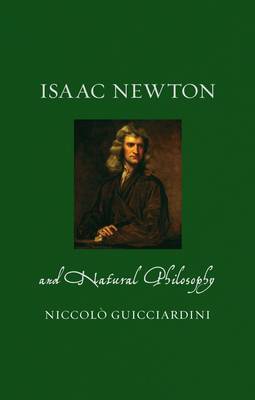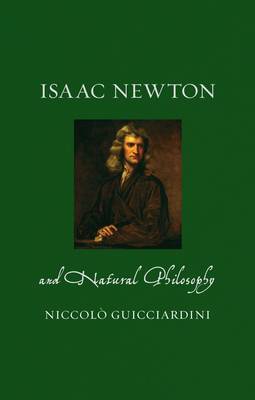
- Retrait gratuit dans votre magasin Club
- 7.000.000 titres dans notre catalogue
- Payer en toute sécurité
- Toujours un magasin près de chez vous
- Retrait gratuit dans votre magasin Club
- 7.000.0000 titres dans notre catalogue
- Payer en toute sécurité
- Toujours un magasin près de chez vous
25,45 €
+ 50 points
Description
Isaac Newton is one of the greatest scientists in history, yet the spectrum of his interests was much broader than that of most contemporary scientists. In fact, Newton would have defined himself not as a scientist, but as a natural philosopher. He was deeply involved in alchemical, religious, and biblical studies, and in the later part of his life he played a prominent role in British politics, economics, and the promotion of scientific research. Newton's pivotal work Philosophiæ Naturalis Principia Mathematica, which sets out his laws of universal gravitation and motion, is regarded as one of the most important works in the history of science. Niccolò Guicciardini's enlightening biography offers an accessible introduction both to Newton's celebrated research in mathematics, optics, mechanics, and astronomy and to how Newton viewed these scientific fields in relation to his quest for the deepest secrets of the universe, matter theory and religion. Guicciardini sets Newton the natural philosopher in the troubled context of the religious and political debates ongoing during Newton's life, a life spanning the English Civil Wars, the Restoration, the Glorious Revolution, and the Hanoverian succession. Incorporating the latest Newtonian scholarship, this fast-paced biography broadens our perception of both this iconic figure and the great scientific revolution of the early modern period.
Spécifications
Parties prenantes
- Auteur(s) :
- Editeur:
Contenu
- Nombre de pages :
- 272
- Langue:
- Anglais
- Collection :
Caractéristiques
- EAN:
- 9781780239064
- Date de parution :
- 15-03-18
- Format:
- Livre relié
- Format numérique:
- Genaaid
- Dimensions :
- 140 mm x 218 mm
- Poids :
- 589 g

Les avis
Nous publions uniquement les avis qui respectent les conditions requises. Consultez nos conditions pour les avis.






